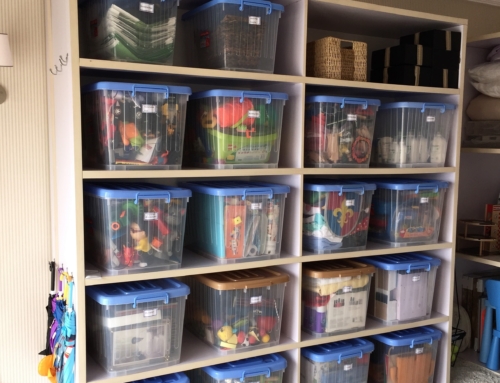By Linda Samuels, CPO-CD® a compassionate, enthusiastic professional organizer and coach, founder of Oh, So Organized!
Most employers expect a high level of organizational skills from their employees. What if being organized is not part of your skill set? There are many individuals that consistently struggle with getting, staying, and being organized. They might be chronically disorganized. The term, “chronic disorganization ” (CD) was developed by Judith Kolberg, founder of the National Study Group on Chronic Disorganization, which has become The Institute for Challenging Disorganization (ICD). There are four hallmarks for chronic disorganization, which include:
- History of disorganization
- Unsuccessful self-help efforts to change
- Disorganization that negatively affects the quality of daily life
- Future expectation of disorganization
What does chronic disorganization look like in the workplace? Chronic disorganization can be visible in a variety of ways. The challenges can be time, possession, and space based.
Time Challenges
- Late to work and meetings
- Misses project deadlines
- Difficulty completing tasks and projects
- Easily distracted
- Difficulty focusing and concentrating
- Works extra hours
- Procrastinates
- Operates in “putting out fires” mode
- Difficulty keeping up with email – has large number of mails in their inbox
- Allows interruptions
- Has difficulty setting boundaries
- Over-commits – Says “yes” to more than is possible to accomplish
Chronic disorganization is not a diagnosis. It’s a different way of being.
Possessions and Space Challenges
- Paper piles cover most surfaces – no clear working area
- Visible clutter such as papers, books, items that don’t belong in the office
- Overabundance of organizational supplies purchased to help get organized –not in use or used ineffectively
- Scraps of paper and sticky notes containing phone numbers, to do items, and important information
- No uncluttered seating for visitors
- Collections of interesting objects, photos, or artwork
- Cabinets, drawers, bookcases overflowing – Items not organized
- Presence of leftover lunch trays, coffee cups, or food wrappers
- Extra umbrellas, coats, and clothing
- Bags of things to be taken home
- Unopened boxes and mail
- Essential items like files, planner, cell phone, keys, or glasses often misplaced
- Has no or ineffective filing or paper management system
Chronic Disorganization individuals are some of the most intelligent, creative, and dynamic people you will have the privilege of working with. Chronic disorganization is not a diagnosis. It’s a different way of being. Traditional organizational strategies based on linear thinking will most likely be ineffective for CD individuals. If disorganization is causing stress and struggle on a regular basis, there is help available. ICD is a great resource to learn more about effective organizing techniques and strategies and for finding professionals that are trained to work with CD clients.
Featured Image Source: Houzz







I think this is among the most significant information for me.
And i’m glad reading your article. But want to remark on few general things, The web site style is ideal, the articles is really great :
D. Good job, cheers
I’m extremely impressed together with your writing talents and also with the format to your blog.
Is this a paid theme or did you modify it your self?
Either way stay up the nice high quality writing, it’s uncommon to look a great blog like this one
today..